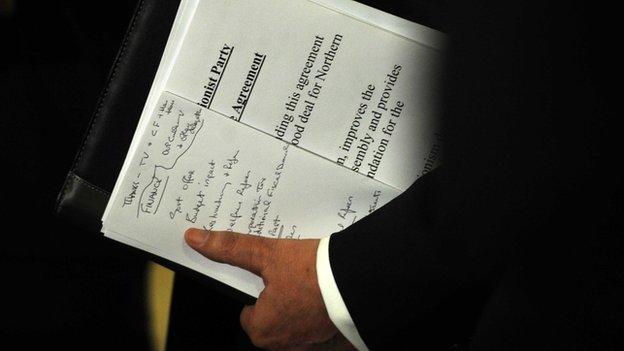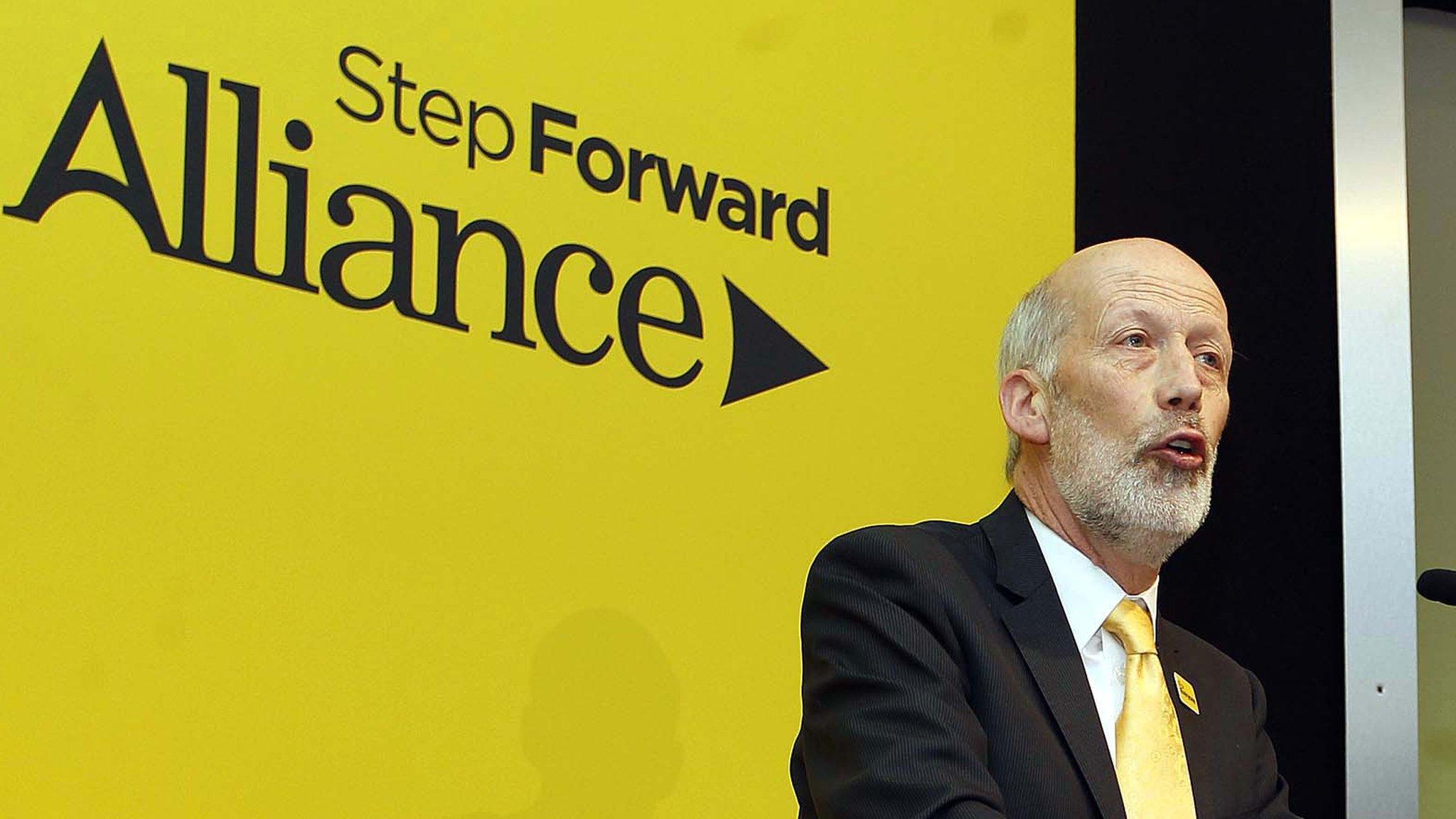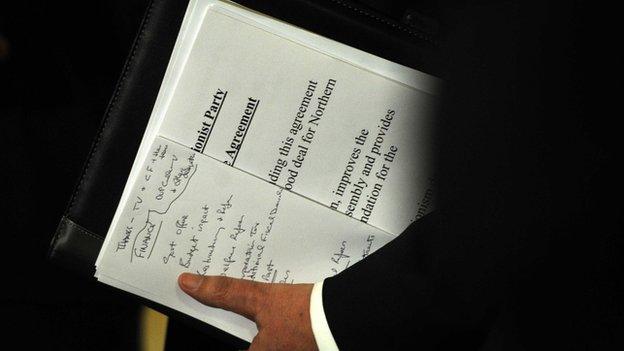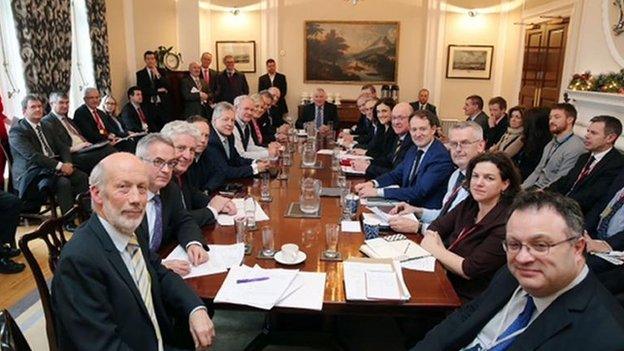Uncertainties remain despite Stormont House Agreement
- Published
- comments

The Stormont House Agreement does not command unqualified support from all the parties
Back in 1998 it was all so easy.
Ian Paisley and Bob McCartney were anti-agreement. U2, Ash, David Trimble, John Hume and a host of others were pro-agreement.
In 2015 it's more complex. If we were to hold a referendum on the Stormont House Agreement we would have to include boxes for people to tick labelled yes, no, fair wind, qualified support and implement but don't like.
It's inevitable, given that most deals are struck between the key players, that the other parties seem relatively happy to let the DUP and Sinn Féin do the heavy lifting.
By remaining semi-detached, the UUP and the SDLP give themselves more room for manoeuvre when the Welfare Reform Bill comes to the assembly chamber.
Despite unionist concern over the NIO decision to drop the north Belfast parading panel, the DUP isn't giving any indication it will back off on the main tenets of the Stormont House deal.
Despite assertions that they caved in over welfare reform, Sinn Féin is showing no sign of having second thoughts.
The notion that the corporation tax element of the agreement might be jeopardised raised its head in the Commons this week.
But Labour blew cold for a day, before blowing just lukewarm enough to apparently guarantee that the bill enabling businesses taxes to be devolved will become law.
Naysayers
Peter Robinson has a point when he objects to commentators redefining all the dates in the Stormont House Agreement as trip wires that might snag the negotiators.
The first minister argues the naysayers would have had a field day if there had been no deal, and are now overly keen to probe any weaknesses in the agreement that did emerge.
So with Stormont about to elect its first Sinn Féin speaker, it's reasonable to acknowledge that the institutions appear to be in a far more stable state in January 2015 than they were when Mr Robinson made his "not fit for purpose" comments back in September 2014.
However, the on again, off again speaker saga also illustrates another truth - that deals concluded between parties can be unpicked if the politicians fall out over subsequent developments.
The calendar for new legislation and new quangos envisaged in the Stormont House agreement may roll out smoothly between now and 2021.
If there was a referendum, I think I'd tick the "events, dear boy, events" box.
- Published8 January 2015

- Published8 January 2015

- Published23 December 2014

- Published23 December 2014

- Published5 January 2015

- Published23 December 2014
